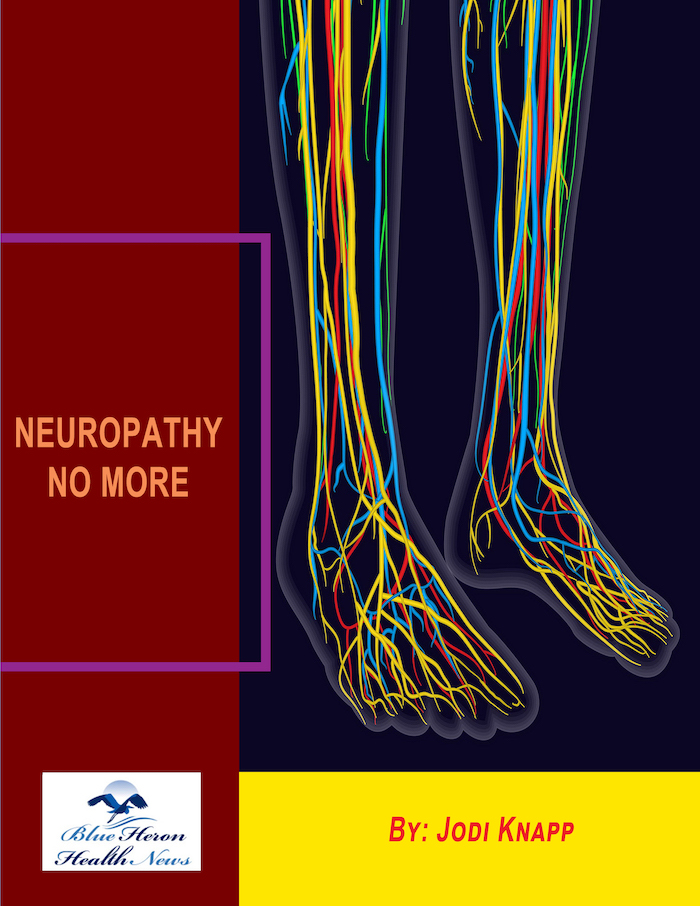
Neuropathy No More neuropathy No More By JODI KNAPP neuropathy is one of the most painful diseases which can make people suffer a lot. Even though medical science has progressed a lot, it could not really found a solution for this condition. This is because the condition is deep routed. You have to make sure that you are changing some of the lifestyle patterns to get relief from the symptoms. The Neuropathy No More is exactly what you need for that. This program is quite helpful and can provide you with all the important information that you will need to ensure better life without the symptoms.
How does diabetes cause neuropathy?
Diabetes can cause neuropathy, or nerve damage, primarily due to prolonged high blood sugar levels (hyperglycemia) that affect nerve function. Diabetic neuropathy is one of the most common complications of both type 1 and type 2 diabetes, and it can lead to a range of symptoms, from mild discomfort to severe disability. Here’s how diabetes causes neuropathy:
1. Chronic High Blood Sugar (Hyperglycemia)
- Direct Damage to Nerves: High blood sugar levels over time can damage the nerves throughout the body, especially the peripheral nerves (those outside the brain and spinal cord). Elevated glucose impairs the nerves’ ability to transmit signals properly, leading to pain, numbness, or tingling sensations, particularly in the extremities (hands and feet).
2. Oxidative Stress
- Free Radical Production: Hyperglycemia increases oxidative stress by producing excess free radicals (unstable molecules that can damage cells). These free radicals can damage nerve cells and the blood vessels that supply nerves, impairing their ability to function properly.
3. Damage to Blood Vessels (Vascular Damage)
- Reduced Blood Flow to Nerves: High blood sugar can damage the small blood vessels (capillaries) that provide essential nutrients and oxygen to the nerves. This can lead to ischemia (reduced blood supply), which causes the nerves to deteriorate because they are not receiving the necessary resources to function and repair themselves.
4. Inflammation
- Chronic Inflammation: Diabetes often causes low-grade chronic inflammation in the body. This inflammation can damage nerve tissues directly and lead to nerve dysfunction. Inflammation also contributes to further oxidative stress and vascular problems, exacerbating nerve damage.
5. Metabolic Changes
- Accumulation of Sorbitol: In people with diabetes, excess glucose can enter the polyol pathway, where it is converted into sorbitol, a type of sugar alcohol. Sorbitol accumulates in nerve cells, causing osmotic stress and leading to nerve damage. It also depletes levels of important antioxidants like glutathione, further increasing oxidative stress on nerves.
6. Immune System Response
- Autoimmune Factors: In type 1 diabetes, an autoimmune condition where the body’s immune system attacks the insulin-producing cells, immune responses may also target nerve tissues. This can lead to nerve damage through inflammatory processes.
7. Changes in Myelin Sheath
- Myelin Sheath Damage: The myelin sheath is a protective layer around nerve fibers that helps transmit electrical impulses efficiently. High blood sugar and oxidative stress can damage the myelin sheath, leading to disrupted nerve signal transmission, which manifests as neuropathy symptoms.
8. Increased Advanced Glycation End Products (AGEs)
- Protein and Lipid Damage: High blood sugar leads to the formation of advanced glycation end products (AGEs), which result from sugars attaching to proteins or lipids in the body. AGEs cause structural damage to nerve tissues and blood vessels, contributing to nerve dysfunction.
9. Mitochondrial Dysfunction
- Energy Deficiency in Nerves: Mitochondria, the energy-producing structures within cells, are also affected by high glucose levels. Damage to mitochondria impairs the nerves’ ability to generate energy, which is critical for maintaining their normal function. This lack of energy can lead to nerve cell death or dysfunction, contributing to neuropathy.
Types of Diabetic Neuropathy
Diabetes can cause different types of neuropathy, depending on which nerves are affected:
- Peripheral Neuropathy: The most common form, affecting the nerves in the extremities (hands, feet, legs, and arms). Symptoms include tingling, burning, numbness, or pain, usually starting in the feet and progressing upward.
- Autonomic Neuropathy: Affects the autonomic nerves that control involuntary functions such as heart rate, digestion, and bladder function. Symptoms can include gastrointestinal issues, bladder problems, sexual dysfunction, and changes in blood pressure.
- Proximal Neuropathy (Diabetic Amyotrophy): Affects nerves in the thighs, hips, or buttocks, leading to weakness, pain, or muscle wasting in those areas.
- Focal Neuropathy: Affects a specific nerve or group of nerves, causing sudden weakness or pain. It can impact the eyes, facial muscles, or torso.
Conclusion
Diabetes causes neuropathy primarily through a combination of prolonged high blood sugar, oxidative stress, vascular damage, and inflammation, all of which impair nerve function. By damaging the nerves and their blood supply, diabetes can lead to a wide range of symptoms, from mild discomfort to severe pain or dysfunction, affecting multiple systems in the body. Proper blood sugar management, lifestyle changes, and medical treatments are key to preventing or slowing the progression of diabetic neuropathy.
Neuropathy No More neuropathy No More By JODI KNAPP neuropathy is one of the most painful diseases which can make people suffer a lot. Even though medical science has progressed a lot, it could not really found a solution for this condition. This is because the condition is deep routed. You have to make sure that you are changing some of the lifestyle patterns to get relief from the symptoms. The Neuropathy No More is exactly what you need for that. This program is quite helpful and can provide you with all the important information that you will need to ensure better life without the symptoms.